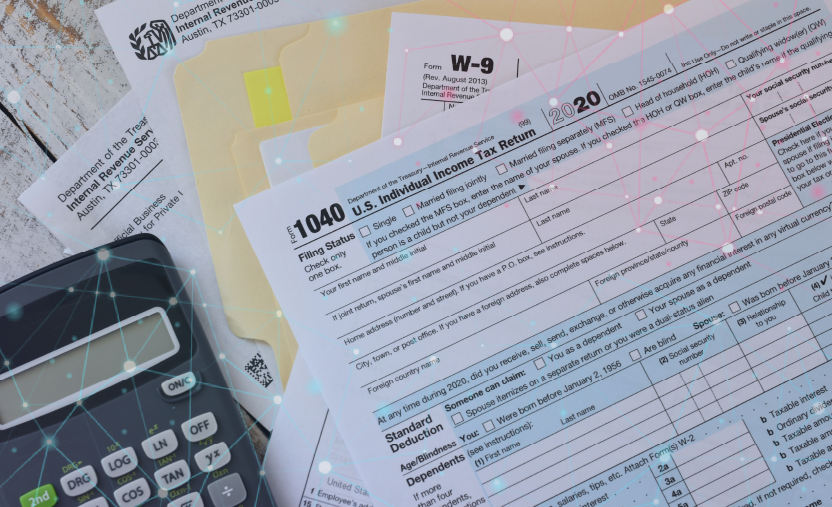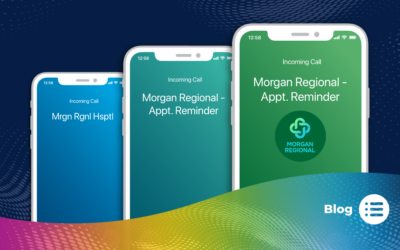April is the cruelest month for many Americans. Coming out of the dead of winter, the tax filing deadline looms and questions linger: Did I withhold enough? Will I have to pay the IRS? What happens if I mess up my paperwork?
The United States tax code is seriously convoluted. About 1/3 of taxpayers have no idea if they’ll owe or get a refund, and nearly 20% of people say they don’t know what the IRS expects of them*.
Even more daunting – people are afraid of the Internal Revenue Service (IRS). It’s a powerful, massive government agency with policies and regulations that directly affect people’s every day lives.
Ignorance of the tax code and how it is enforced, along with the fear of retribution, leaves taxpayers at risk of getting conned. This creates a perfect storm for scammers, who are projected to ramp up their efforts to make over 520 MILLION calls in a single day during the tax season.
The U.S. Tax Code: It’s … Complicated
Chalk that one up for understatement of the year.
There are at least 13 commonly used tax forms, such as a 1040, W-2, W-4, 1099, and 1098. That seems simple (kind of). Yet there are variations on each form, which could be dependent on your status or source of income.
Are you a senior citizen? – Separate form.
Student? – Separate form.
Have a mortgage? – Different form.
Did you receive income from investments, interest, or a third-party payment system? Each has its own form.
Not to mention, there are myriad deductions and incentives that people often have no clue about or where they come from.
It’s not at all surprising that 73% of Americans say they’re bothered by the tax code.
What Does the IRS Expect from Me?
Bothered is one thing. There’s a sizable segment of the population that doesn’t know what the IRS expects of them – about one-fifth of taxpayers say they don’t fully understand the tax requirement expected of them each year.
It’s reasonable to assume that if you don’t know what’s expected of you, you’re more likely to make a mistake.
Fear the (Tax) Reaper
What happens when you make an error on your tax filing? If you get caught, you may owe money back to the federal government.
So, are audits common? Surprisingly, the IRS audits fewer than 1% of all tax filings. The agency itself admits that the more income you make, the more likely you are to get audited (this is especially true for earners of $10M or more).
Regardless, nearly 80% of people say they’re somewhat concerned about the IRS imposing penalties or scrutinizing their filings if they owe the IRS money.
There’s not a person in the country that would voluntarily give their money away to the government.
Trust and Fear – A Match Made for Misery
Despite generally low audit rates, nearly 40% of people admit they are afraid of the IRS as an organization. Conversely, more than 70% of people said that if the IRS questioned the accuracy of their filing that they would trust them to be right.
Some combinations go well together, like chocolate and peanut butter or hotdogs and baseball. Dreading the IRS while also trusting that the agency would be correct during a review can leave people vulnerable to scams.
Scammers prey on the trust or fear of their victims, and according to our survey, 20% of respondents said they had received what they thought was an IRS-related scam call.
In addition, if they’re afraid of the agency, those people are more likely to meet a caller’s demands. Uncertainty could make folks more likely to comply so they can resume their lives without worrying if they’ll be charged more money or receive some other form of punitive damage, such as a lien against their home or being thrown in jail.
A Season for Scam Calls
Scam calls are a year-round nuisance though seasonality affects the types and frequency of calls. Think of package and delivery scams that increase at the end of the year around the holiday season. The same happens before and after the tax filing deadline, but with tax scams.
In 2021, scam behavior patterns around tax season became very apparent when the filing date was moved from April 15 to May 17.
Scammers hit consumers hard on April 7 – peaking a week before the traditional deadline at over 86% of the average daily volume from January – May. While calls initially regressed, the volume increased the week of May 2, then picked up again just before and after the May 17 deadline.
What does this mean for 2022?
2022 Peak Scam Call Dates and Major Losses
Based on First Orion data, we predict the weeks of April 11 and April 25 will be the peak scam call weeks.
The week of April 11 could see nearly 2.2 BILLION scam calls, with a peak on or around April 12 with over 520 MILLION calls in a single day. Victims could lose around $875 MILLION during that week.
After the tax filing deadline, it gets even worse. The week of April 25 could see a scam call volume reaching over 2.2 BILLION scam calls, with projected losses around $891 MILLION.
Those two weeks alone could cost people $1.76 BILLION.
Vulnerable Consumers
Why are taxpayers susceptible to tax scam calls?
Remember – nearly 2 in 5 people say they’re afraid of the IRS and more than 7 in 10 say they would trust the IRS to be correct if they audited their return and found an issue.
There’s another reason why some people are more vulnerable than others. A lot of people don’t know how the IRS would contact them if they found a discrepancy.
One-third of people said they would expect the IRS to call them on the phone if there was an issue with a refund or expected payment.
However, the IRS site states that the agency will never:
- Call to demand immediate payment using a specific payment method such as a prepaid debit card, gift card, or wire transfer. Generally, the IRS will first mail a bill to any taxpayer who owes taxes.
- Threaten to immediately bring in local police or other law enforcement groups to have the taxpayer arrested for not paying.
- Demand that taxes be paid without giving taxpayers the opportunity to question or appeal the amount owed.
- Call unexpectedly about a tax refund.
Protect Yourself
With tax season upon us, Americans should expect to see a rise in scam calls, especially as we get closer to the filing date on April 18. While it’s understandable why people are afraid of the IRS – and how the tax expectations can be hard to understand – there are a few things to remember.
The IRS will not ask for immediate payment over the phone or threaten to send law enforcement after you for non-payment. Do not give out personal or payment information over the phone.
If you do receive what you think is a scam call, report it to the FTC at 877-382-4357. Be sure to note the date, time, and number that called, along with any other information you remember.
*First Orion conducted a survey of US taxpayers in March 2022.




